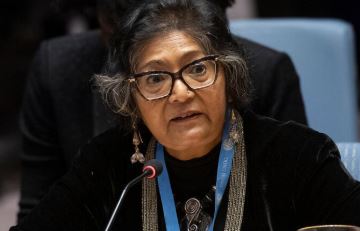The independent experts of the United Nations Commission on Human Rights in South Sudan on Monday started a four-day visit to the country with Chairperson Yasmin Sooka leading the mission along with Commissioners Barney Afako and Carlos Castresana Fernández.
According to a press statement tended to Radio Tamazuj, the experts will meet members of the Government of South Sudan, survivors of human rights violations, members of civil society, jurists, humanitarians, and representatives of diplomatic missions and United Nations entities.
“They plan to discuss the human rights situation in South Sudan, including the Commission’s latest findings and recommendations from its independent investigations,” the statement reads in part. “The Commissioners will hold a press conference at 10 a.m. on Thursday, 20 February, hosted in the UNMISS conference room in Tomping, Juba.”
“Later the following week, the Commission is scheduled to present its latest findings on the human rights situation in South Sudan to the UN Human Rights Council in Geneva,” the statement added.
The Commission on Human Rights in South Sudan is an independent body mandated by the United Nations Human Rights Council. First established in March 2016, it has been renewed annually since. Its three Commissioners are not UN staff; they are not remunerated for their work as Commissioners, and they serve independently in their capacity as experts. They are supported by a Secretariat based in Juba, South Sudan.
The Commission is mandated to investigate the situation of human rights in South Sudan and to make recommendations to prevent a deterioration of the situation, with a view to its improvement. The Commission is also mandated to determine and report the facts and circumstances of human rights violations and abuses, including by clarifying responsibility for crimes under national and or international law. The Commission’s findings are informed by independent interviews conducted with victims and survivors of human rights violations, as well as witnesses, service providers, and related experts and stakeholders.




